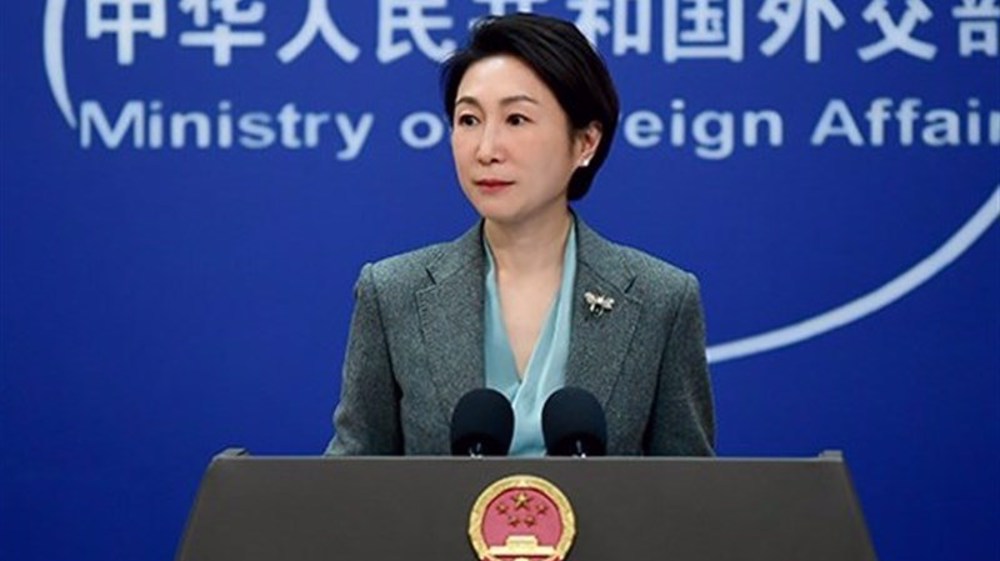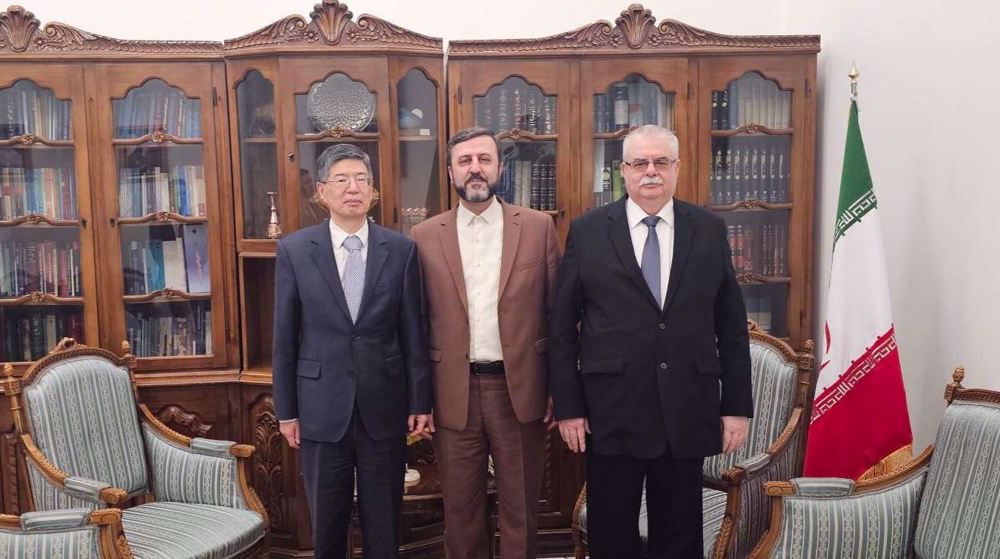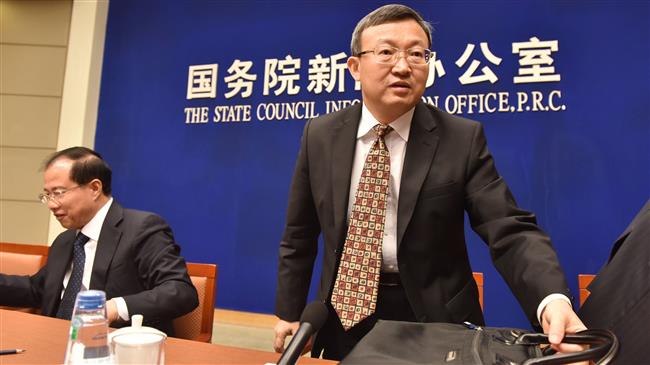China demands US ‘dispel obstacles’ to military relations, stop slander
China has urged the United States to “dispel obstacles” in the way of improving military relations and to stop slandering the country amid souring tensions in bilateral ties over a range of issues, including trade tariffs and US President Donald Trump’s claims of Beijing’s interference in the upcoming US mid-term elections.
Back in April, Trump initiated what is effectively an all-out trade war with China after he first imposed unusually heavy duties on a wide range of imports from China, a move that infuriated Beijing and prompted it to take a tit-for-tat action by levying tariffs on American goods.
Furthermore, Washington imposed an array of sanctions on the Chinese military over Beijing’s decision to purchase 10 Russian SU-35 fighter jets in 2017 as well as S-400 surface-to-air missile system-related equipment in 2018.
The move angered China, which said that the purchases were a normal act of cooperation between two sovereign countries and the US had “no right to interfere.”
China also said that its military reserved the right to take further countermeasures against the latest US-imposed sanctions on the Equipment Development Department (EED) — a branch of the Chinese military responsible for weapons procurement.
China has the world’s largest standing army and has been engaged in a modernization program that reportedly includes investment in technology as well as new equipment such as stealth jet fighters and aircraft carriers.
“The United States is to blame for the present problem, so the United States must immediately correct its mistakes, and withdraw the so-called sanctions to dispel obstacles that interfere in the healthy development of relations between the two militaries,” said Defense Ministry spokesman Ren Guoqiang at a monthly briefing in the capital Beijing on Thursday, hinting a planned visit to the US later this year by Defense Minister Wei Fenghe could be in doubt.
Meanwhile, China lambasted the US for recently flying a group of B-52 long-range strategic bombers over the South and East China Seas, two disputed waterways over which Beijing claims historical sovereignty, calling the move a “provocative action.”
The US, an extraterritorial power, often conducts what it calls freedom of navigation patrols in the South China Sea, drawing Chinese objection. Washington also accuses Beijing of undertaking a land reclamation program by building artificial islands in the South China Sea.
In a separate occasion, Trump infuriated Chinese leaders on Wednesday, when he accused China of seeking to meddle in the November 6 US congressional elections, claiming that Beijing did not want him or his Republican Party to do well because of his pugnacious stance on trade. The allegation was promptly denied by the Chinese.
“We advise the United States to stop this unceasing criticism and slander of China. Stop these wrong words and deeds that damage bilateral relations and the basic interests of both countries’ peoples,” said Chinese Foreign Ministry spokesman Geng Shuang at a separate briefing on Thursday, responding to the meddling allegations.
Beijing was also infuriated earlier this week when Washington added fuel to the flames when it approved the sale of spare parts for F-16 warplanes and other military aircraft worth up to $330 million to Taiwan, which China considers a wayward province.
VIDEO | Third round of Iran-US nuclear talks concludes in Geneva
Geneva talks: Iran signals firm resolve, rejects US pressure, proceeds with cautious optimism
Iran urges Afghanistan, Pakistan to hold dialogue amid new escalation
US will suffer ‘massive losses’ in case of new war: Iraq's Kata’ib Hezbollah
Normalization increases cost of defeating Israel, Yemeni leader warns
Activists announce 'Freedom and Sumud Flotilla' to challenge Gaza blockade
VIDEO | Rome residents demand end to ties with Israeli firms
VIDEO | Pakistan Senate condemns ‘hexagon of alliances’ as Indian PM visits Israel












 This makes it easy to access the Press TV website
This makes it easy to access the Press TV website